Incorrect dosage medication errors occur when you receive a dose different from what you should receive. The dose could be higher or lower than the intended one and these medical errors can happen at the pharmacy, GP surgery or hospital.
The side effects of incorrect dosage medication errors can be terrible, and it can take a long time to get back to where you should be with the correct dose.
An incorrect dosage medication error can harm you in the short and the long term. It is not unusual for victims of this type of medical negligence to require medical attention.
Compensation claims for incorrect dosage errors are very common in the UK.
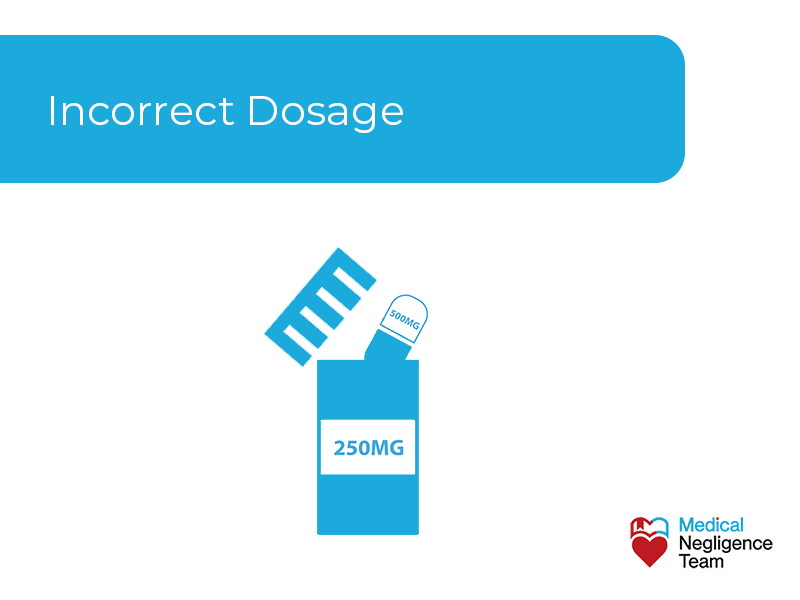
Table of content
What is an incorrect dosage medication error?
An incorrect dosage of medication error is when you are given a dosage which is different to the one which a doctor prescribed you. There are the common medication errors which happen when patient safety is compromised.
Common types of adverse drug events include:
Giving the incorrect medication dose is a serious form of medical negligence.
Being dispensed the wrong dosage at the pharmacy
Being dispensed the wrong dosage at the pharmacy is a prime example of pharmacy negligence. They have given you a dose different from that prescribed by your doctor, and you are the one to suffer the medical errors with your prescription.
The pharmacy may give you the incorrect medication dosage or give you dosage instructions different from the doctor’s prescription. There can be errors with automated medication dispensing systems too, which can lead to adverse drug events.
The sticker on your bag may match what the doctor prescribed, but what is inside could be completely different.
A medical professional giving you too many tablets
A medical professional giving you too many tablets can happen in several ways.
There may be the wrong dosage on the prescription, the pharmacy may make a mistake, or your nurse may make the incorrect dosage error when administering it.
Too many tablets can cause patient harm even if the effects may take time to be noticed.
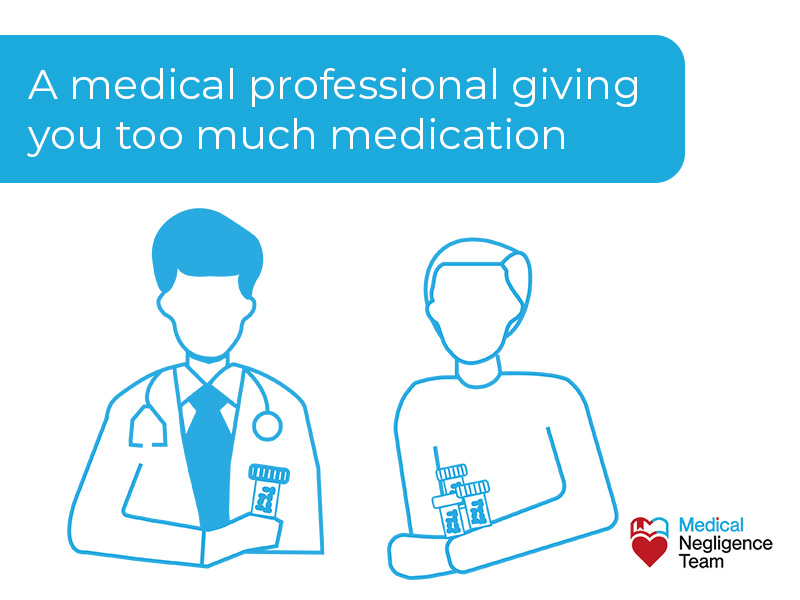
Receiving too few tablets from a medical professional
Receiving too few tablets from a medical professional is another common example of medical negligence. Your doctor may give you the wrong prescription, the pharmacy could make a mistake, or the hospital nurse could put too few in the dispensing cup.
Your body may react badly to too few tablets, and the effects could stay with you for a long time.
Incorrect dosage errors
Incorrect dosage errors happen anywhere, and a few examples will show how easily and often they happen.
Too low a dosage of blood thinners medication:
Too low a dosage of blood thinners medication can increase a patient’s chances of a blood clot.
The doctor will prescribe blood thinners when a patient has a stent fitted or suffers from atrial fibrillation. Blood thinners, also known as anticoagulants, lower the risk of blood clots.
If given too low a dosage by a nurse, the patient is at a high risk of developing blood clots, which can cause a stroke.
Strokes, such as an ischaemic stroke, reduce the blood supply to the brain, starving the brain of oxygen. The resulting brain injury will affect speech and the ability to use the arms and legs.
For strokes to happen due to medication administration errors is unforgivable, as the wrong dose error could have been avoided.
Too high a dosage of blood thinners
Too high a dosage of blood thinners can cause extensive internal bleeding. The bleeding can occur anywhere but could easily be a bleed on the brain or gastrointestinal bleeding into the bowel.
You will need to spend time in hospital and may well need a blood transfusion. Crucially the blood thinning medication will have to stop while they try to stem the bleeding, putting you at risk of developing a clot.
The medical professionals will be between a rock and a hard place. They want to stop the bleeding but do not want you to develop a clot.
An avoidable error if the medical professionals had not made the incorrect dosage error in the first place.
Anaphylaxis is a side effect of incorrect dosage
Anaphylaxis is a side effect of incorrect medication seen in many people. You can get an anaphylactic shock from too high a dosage.
Another avoidable incorrect dosage medication error.
Symptoms of anaphylactic shock include swelling of the lips, throat, neck, and limbs. Other symptoms are confusion, anxiety, collapsing to the ground and losing consciousness.
Incorrect dosage of pain relief
Incorrect dosage of pain relief can happen after surgery.
After an operation, you may be given pain relief, such as morphine, by an IV infusion. If the medical professional gives you an excessive amount of morphine, you could go into respiratory arrest or have significantly reduced respiratory effort.
They will have to give you an emergency dose of Naloxone, an antidote to the overdose of morphine. Naloxone can give you nasty side effects and make you very ill.
In extreme cases, a morphine incorrect medication error will result in an ITU admission. Many people will suffer from the psychological impacts of being admitted to ITU.
Avoidable errors of incorrect dosage
Avoidable errors of incorrect dosage can have serious effects on a patient. You may suffer further illness, internal injuries, and lifelong psychological trauma.
Whether you suffer a too high or too low incorrect dosage medication error, it will have a dramatic and catastrophic impact on your health.
If you suffer from an incorrect dosage medication error, you can claim compensation.
Who is responsible for an incorrect dosage?
A medical professional is responsible for any incorrect dosage medication error.
It could be a pharmacy, your GP, nurse, a carer or hospital doctor who makes the error. The error may happen when giving you the medication or when the doctor writes the prescription.
Whoever makes the incorrect dosage medication error is responsible for answering your medical negligence claim.
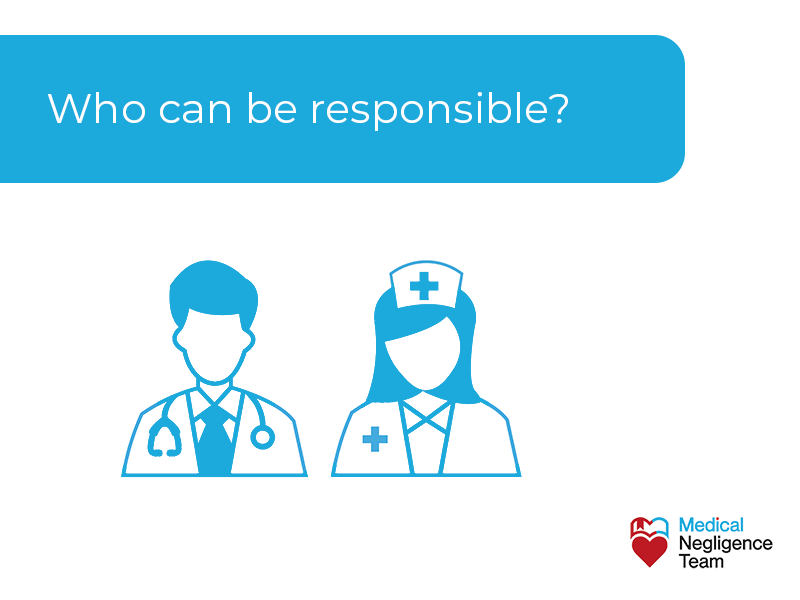
How to start an incorrect dosage medication error claim
How to start an incorrect dosage medication error claim depends on where the negligence happened. Knowing who is responsible for the medication error will make it easier to take to correct steps to a successful compensation claim.
Depending on where the incorrect dosage error happens determines your first actions.
Incorrect dosage by pharmacy
Incorrect dosage by a pharmacy is easy to trace.
When your pharmacy makes an incorrect medication dosage error, take pictures of the medication, box label and contents.
Contact your GP for advice on how to deal with the situation, so they can tell what treatment and tests you may require. You may need to contact NHS 111 or attend A&E if you have any worrying symptoms.
Once your treatment plan is in place, a medical negligence solicitor can start the claim process.
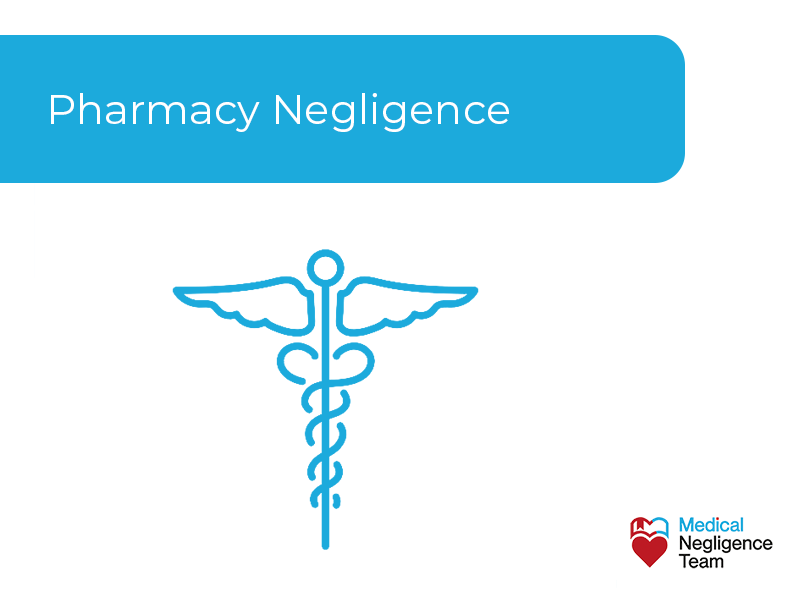
Incorrect dosage by GP
Incorrect dosage errors by your GP may have a similar paper trail to the pharmacy negligence.
The GP may make a typo when doing your prescription, giving you the incorrect dosage. They could also misread your notes or not pay attention to what they are doing.
Either way, you could suffer from an incorrect dosage error.
Follow the same steps as for pharmacy negligence cases by taking clear pictures of the medication, box label and contents. Contact your GP to ensure you get the required medical advice to deal with the incorrect dosage.
Your GP will advise what tests and investigations are required to deal with the impact or incorrect dosage.
Do not hesitate to contact NHS 111 or attend A&E if you are in any way concerned based on the symptoms you are experiencing.
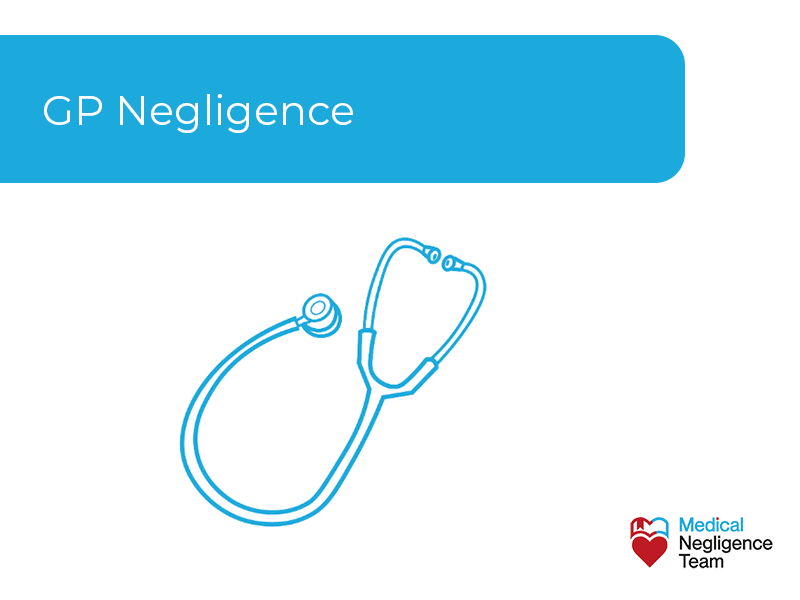
Incorrect dosage by the hospital
Incorrect dosage by the hospital tends to be a little more technical.
It could involve an incorrect dosage rate being provided through an infusion pump or the nurse giving too high or low a dose.
The infusion pump could be faulty, causing you to get too much or even none of your medicine.
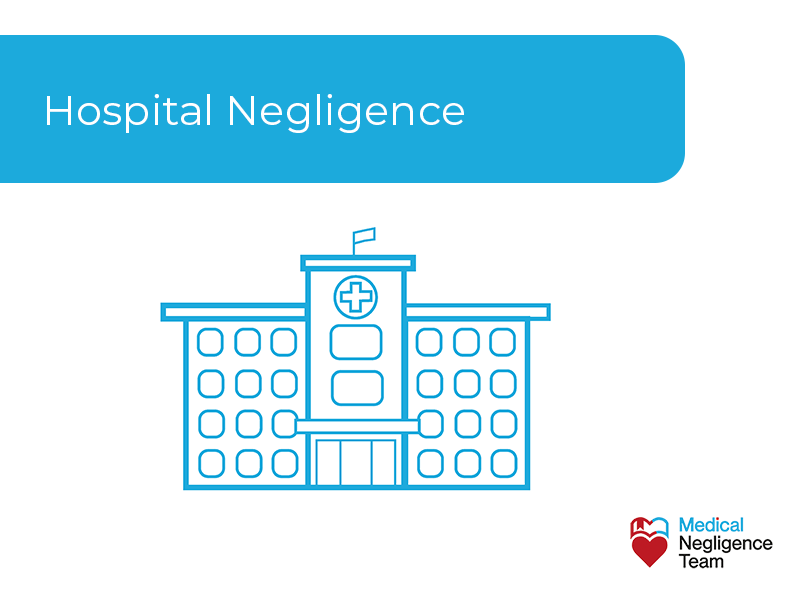
Our Process
Our team members have a higher career win rate with a 75% success rate on NHS letters of claim, compared to an industry average of 54.5%.
Enquiry
The first step is to get in touch and tell us what went wrong. It’s free and easy. Call our 24-hour helpline: 0800 246 1122 or request a callback here.
Medical Evaluation
Once you have spoken with our team we’ll let you know how we can help. Typically the next step is to obtain your medical records for us to review.
Legal Letter
Once all your medical records have been received they will be reviewed by a medically & legally qualified member of our team. If there is evidence of negligence we will send a letter of claim to the negligent party outlining your compensation claim.
What types of claims can be made for incorrect dosage medication errors?
Types of claims for incorrect dosage medication errors include those for pain, suffering and loss of amenity.
In all medical negligence cases, there are two types of damages for which you claim compensation.
General damages
General damages are when you claim for the pain and suffering of the incorrect dosage medication error. Any direct discomfort and physical impairment you suffer from the incorrect dosage medication errors come under the general damages banner.
A general damages claim includes headaches, excessive bleeding, and psychological trauma.
Special damages
Special damages are for loss of earnings, out-of-pocket expenses and any past and future care requirements.
There may be a need to take time off work, or it could be you are unable to work for the rest of your life. The costs of care and the medical costs of fixing what went wrong can be very high.
The long-term effects of you suffering a stroke due to being given too low a dosage of medication can be expensive to remedy. The resulting financial claim can be very large, particularly where significant ongoing care requirements exist.
You will need compensation to cover all financial costs of the incorrect dosage medication error, and a special damages claim covers them.
What to do after suffering an incorrect dosage medication error?
After suffering an incorrect medication error, you must follow the steps to claim compensation. You may be suffering from the stress of the errors, but by following each step correctly, you will get the money due to you.
A No Win No Fee medical negligence solicitor will take on your claim and guide you along the steps to take.
Step 1: Take pictures
Take pictures of all the evidence before you do anything else. Take as many photos as you can to help document the error.
You should photograph the medication, the box, and all labels, including those on the bag.
If in hospital, take a picture of the infusion pump set at the incorrect rate.
Step 2: Report the incorrect dosage medication error
Report the incorrect dosage medication error to the pharmacy, GP or hospital that made the mistake. Ask them to undertake an investigation and provide you with a written copy of that investigation.
Step 3: Obtain your medical records
Obtain your medical records to verify what happened to you. Your specialist No Win No Fee medical negligence solicitor will arrange to obtain your medical records with your permission.
Your medical records and the report from the negligent party will help the solicitor put together your claim.
Step 4: Sending a letter of claim
Sending a letter of claim is the next step in the process once the solicitor identifies the incorrect dosage error.
Your medical negligence solicitor will send the letter of claim to the negligent party, asking them to make an offer of compensation for their negligence.
The negligent party has four months to respond to the letter of claim.
Step 5: Settling your claim
Settling your claim for an incorrect dosage medication error happens once the negligent party has admitted negligence.
Your solicitor will sit down with representatives of the pharmacy, GP or hospital that gave you an incorrect dosage.
The claim will be valued for both general and special damages, and your medical negligence solicitor should only settle for the full value.
A No Win No Fee 100% compensation guarantee
A No Win No Fee 100% Compensation guarantee solicitor is essential when taking a medical negligence claim.
The No Win No Fee policy ensures you do not pay any fees if the case is unsuccessful.
A 100% compensation guarantee means you keep all the money awarded to you in the claim. You are the one who suffered, and you deserve every penny for the damages from the negligence
Medical Negligence Team operates a No Win No Fee policy and a 100% Compensation Guarantee on all medical negligence cases.

Begin your incorrect dosage claim today
Contact us at Medical Negligence Team when you suffer an incorrect dosage medication error. Our team of legal and medical experts will guide you along every step of the compensation claim. We only operate on a No Win No Fee basis and have a 100% Compensation Guarantee scheme for all cases.
Contact us today for all your medical negligence needs.


